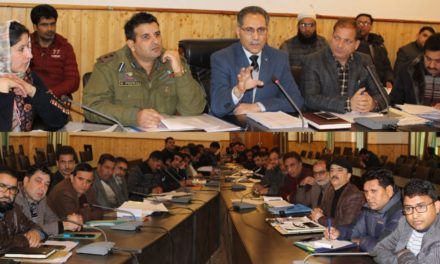![]()
KNZ NEWS DESK
New Delhi: Amid the Hijab row in Karnataka, prominent Muslim organisation Jamiat Ulema-e-Hind on Saturday asserted that hijab is mandatory in Islam and claimed that stopping Muslim students from wearing it was against Article 25 of the Constitution which talks about freedom of practising religion.
A meeting of the Working Committee of the Jamiat Ulema-e-Hind (Arshad Madani faction) was held at the organisation’s central office here under the chairmanship of Maulana Arshad Madani during which important social and contemporary issues were discussed in detail, a statement issued by the Jamiat said.
Talking about the issue of hijab that began in Karnataka and has now been reported from other parts of the country as well, Madani said some “so-called educated people” are giving a wrong impression that hijab is not obligatory in Islam and there is nothing mentioned about it in the Quran.
“There are Islamic guidelines on hijab in the Holy Quran and Hadith which clearly say that hijab is mandatory in Shariah,” Madani said.
As far as the constitutional issue is concerned, he said, the prohibition of Muslim students from wearing the hijab is against Article 25 of the Constitution which gives rights to minorities.
India has no State religion but it gives complete freedom to all citizens to practice their religion, the Jamiat said.
The Karnataka High Court concluded the hearing related to the ‘hijab’ (scarf) case on Friday, but reserved its order.
The Bench, constituted on February 9 and comprising the Chief Justice, Justice Krishna S Dixit and Justice Jaibunnisa M Khazi, heard on a day-to-day basis over the last two weeks a batch of petitions filed by some girls seeking permission to wear the hijab in educational institutions where a uniform has been prescribed.
The girls were allegedly denied entry into a pre-university college for girls in Udupi in December last for violating the dress code.
On January 1, six girl students attended a press meet organised by the Campus Front of India (CFI) protesting against denial of entry into classrooms as they were wearing the hijab. This prompted the boy-students to wear saffron shawls in protest.
As the issue of hijab versus saffron scarves spread to several educational institutions in many parts of Karnataka since then, the state government announced a holiday from February 9 to February 15 in all the pre-university colleges and from February 9 to February 16 in degree and diploma colleges.
In its interim order, the Bench asked the government to re-open the educational institutions which were hit by the agitation, and restrained students from wearing religious attire till the court issues the final order.
Madani also said there was a dire need for schools and colleges in which Muslim children can get higher education in a religious environment without any hindrance or discrimination.
He also appealed to people to set up more schools and colleges for boys and girls where children can easily get a good education in a religious environment.
Apart from the Jamiat chief, General Secretary Jamiat Ulama-i-Hind Mufti Syed Masoom, Vice President Jamiat Ulama-i-Hind Lucknow Maulana Abdul Aleem Farooqi, Maulana Asjad Madani from Deoband, among others, attended the meeting.–(PTI)

























